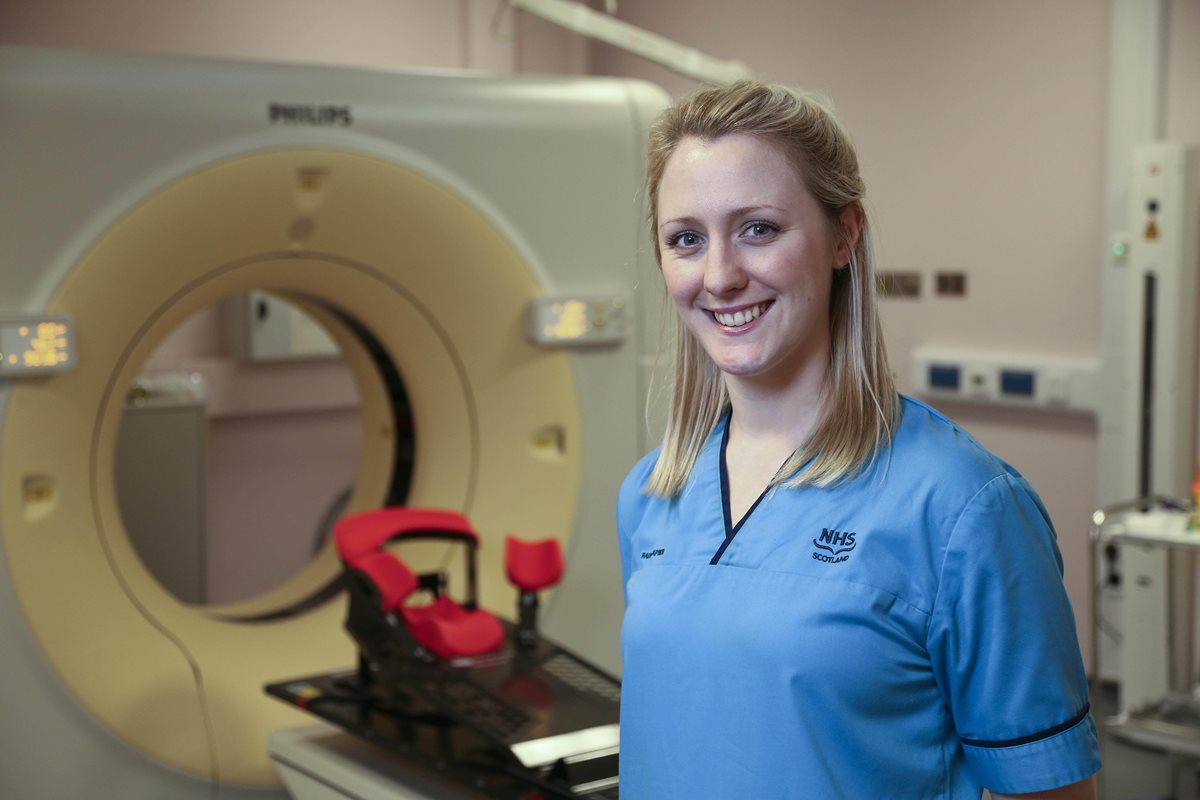How to best equip staff to have meaningful conversations with patients, develop a pathway for training advanced practitioners, and a therapeutic radiographer-led sexual care clinic, were discussed at UKIO Online 2020, chaired by Joanne Mitchell, research radiographer at Edinburgh Cancer Centre.
Helping staff to help their patients
“While we should focus on our technical competencies to undertake safe delivery of our treatments, we should also maintain a focus on our patients’ and staff wellbeing throughout our careers,” said Ana Azavedo, the first speaker.
She described a project by the radiographer research group at Edinburgh Cancer Centre, which has studied values versus evidence-based practice based on the question, ‘should the art of communication become a continuous training requirement of a competent therapeutic radiographer?’
“Therapeutic radiographers are a unique group of highly skilled individuals in the healthcare system, highly trained to deliver treatment but we are also expected to have excellent communication skills," Ana said.
"The group of patients we work with require complex and delicate conversations, and we need a high emotional resilience level to support patients as well as the colleagues we work with day-to-day.”
Key take-aways from study
- Staff wellbeing paramount
- Development of supportive interventions for staff is vital
- A communications document has improved overall general knowledge
- Regular positive per review to help reduce stress levels
- Create more CPD and training time for radiographers
- Provide mindfulness sessions including counselling
A blueprint for advanced practice
How Weston Park Cancer Centre has developed a robust framework for advanced practice (AP) was the focus of Denyse Hodgson’s presentation, which detailed the initial planning and then the training and qualification pathway for new therapeutic advanced practitioner roles within the centre.
“We have focused on areas where the AP role will make an impact and although it took a while to agree a framework, it has definitely made a positive impact; it is great to see the change and very rewarding," Denyse said. She is the education and development radiographer at Weston Park.
Challenges
- Creating a ‘shared vision’
- Management expectations of cost savings versus initial investment in staff
- Obtaining agreement on roles
- Developing trainees’ confidence to work autonomously
- Developing the therapeutic AP role based on a ‘nursing model’
- Encouraging confidence in competency sign-off
Enablers
- Funding for training and the roles
- Supportive management with vision
- Good clinical supervision from assessors and mentors; and peer support
- Motived individuals and supportive clinical supervisors
- Effective inter-disciplinary working
- Well established training plans
- Evidence of positive impact brings others ‘on-board’
“I do believe that Weston Park does have a shared vision now for advanced practice and career progression and that’s a good thing for the staff; and you cannot over emphasise that communication is paramount to the development of these roles - communication with patients, with other professionals and across services,” said Denyse.
A much needed service
A radiographer-led sexual care after radiotherapy clinic at the Churchill Hospital in Oxford is designed to address the unmet needs of patients who have received radiotherapy treatment.
Loryn Caulfield, consultant therapeutic radiographer, spoke to attendees about the decision to provide a service that would offer patients information, education and support; specific suggestions and signposting to useful services; provide support and advice for local GPs so that they could better advise their patients; and finally to promote this service within the trust and nationally.
Key actions
- Created a business case for funding
- Developed a referral pathway - self, consultant or other professional healthcare referral
- Forged links with specialist support services to promote the clinic
- Promoted the service through a flyer for all patients
- Provided comprehensive training and education of staff
The team used the Ex-PLISSIT model which implements interventions at varying levels, revolving around what the client is looking for and how comfortable they are in discussing sexuality and sexual health.
“We used this model to guide our consultations as it gives specific suggestions about the side effects of radiotherapy and how they can impact on sexuality, considering diagnosis and treatments and the effect that can have on relationships,” Loryn said.
Summary and ongoing work
- Peer support is essential
- Very positive response from patients
- Now developing more links with other services including Macmillan
- Continuing to learn from experience
- Accepting that we can’t solve all issues
- Understanding that patients often just want to be heard
- Promoting the service is key to its continued success
“We definitely don’t have all the answers and we can’t solve all the problems but we can provide a sympathetic ear and specific suggestions for patients in an area that has previously been very neglected. We now need to promote the service within our trust and nationally, to try to reach as many patients as possible and continue to support this valuable service.”
Other papers in the session included: Using CBCT for dosimetric quality assurance of MR-only radiotherapy by Jonathan Wyatt, radiotherapy physicist and PhD student at the Institute for Clinical and Translational Research, Northern Centre for Cancer Care; Non-invasive cardiac radioablation for ventricular tachycardia - treatment delivery experiences from three centres by Karen Pilling, clinical lead superintendent radiographer, Newcastle upon Tyne Hospitals NHS Foundation Trust; and Can CT-CBCT matching skills be transferred to MR-CBCT matching for MR-only prostate radiotherapy? by Rachel Brooks, research and development clinical specialist radiographer, Northern Centre for Cancer Care, Newcastle upon Tyne Hospitals.

